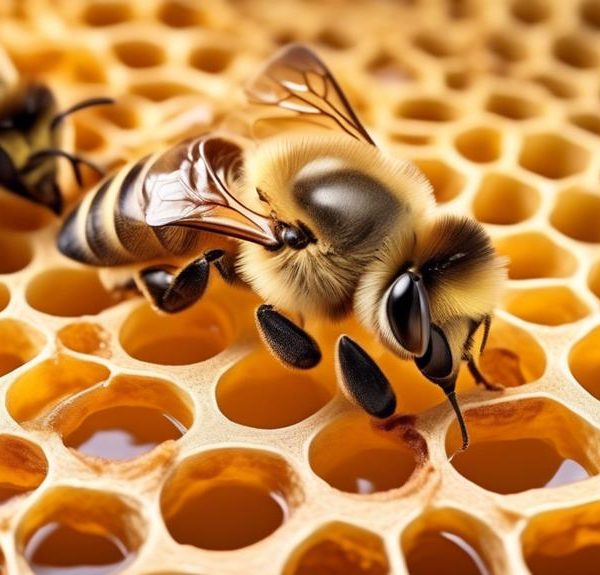Navigate the complexities of free bee removal in the UK, understanding the types, procedures, and options to ensure safety and ecological balance.
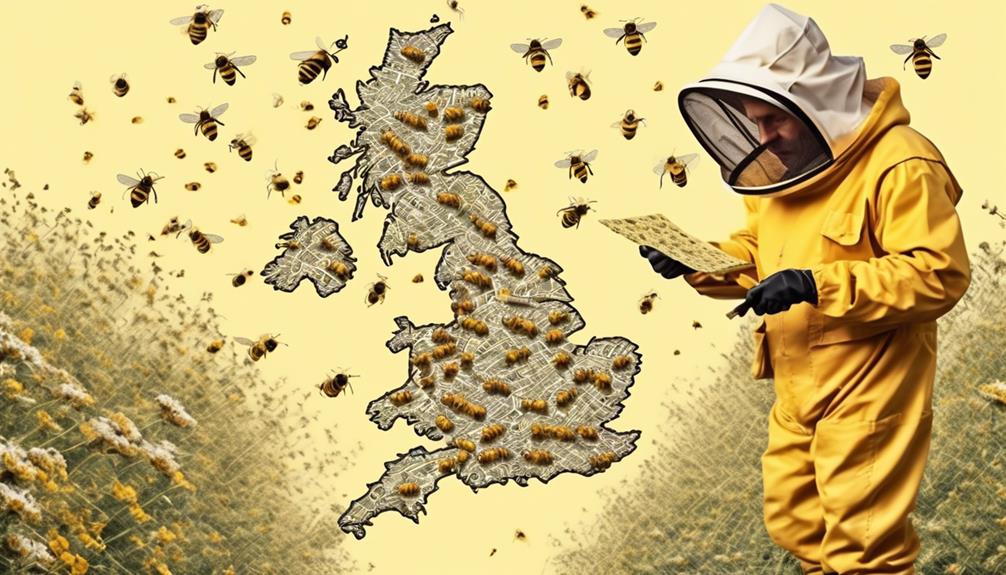
Can You Get Bees Removed for Free in the Uk?
Imagine you're in your garden in the UK, enjoying a warm, sunny day when suddenly you notice a swarm of bees has taken up residence in your shed.
You're aware of the vital role bees play in the ecosystem but you're also concerned about the safety of your family and pets.
You might be asking yourself, 'Can I get these bees removed for free?' It's a valid question and one that requires an understanding of different types of bees, bee removal procedures, and the options available to you.
As we explore these topics, you'll get a clearer picture of what's involved, which should help you make the best decision for your situation.
Key Takeaways
- Bees are crucial for pollinating food crops and without them, our diets would be severely impacted.
- There are different types of bees in the UK, including honeybees, bumblebees, and solitary bees.
- Honeybees are protected species and should be relocated by a professional beekeeper.
- Free bee removal options include contacting the British Beekeepers Association, local beekeepers, or checking with the local council for pest control services that include bee removal.
Understanding the Importance of Bees
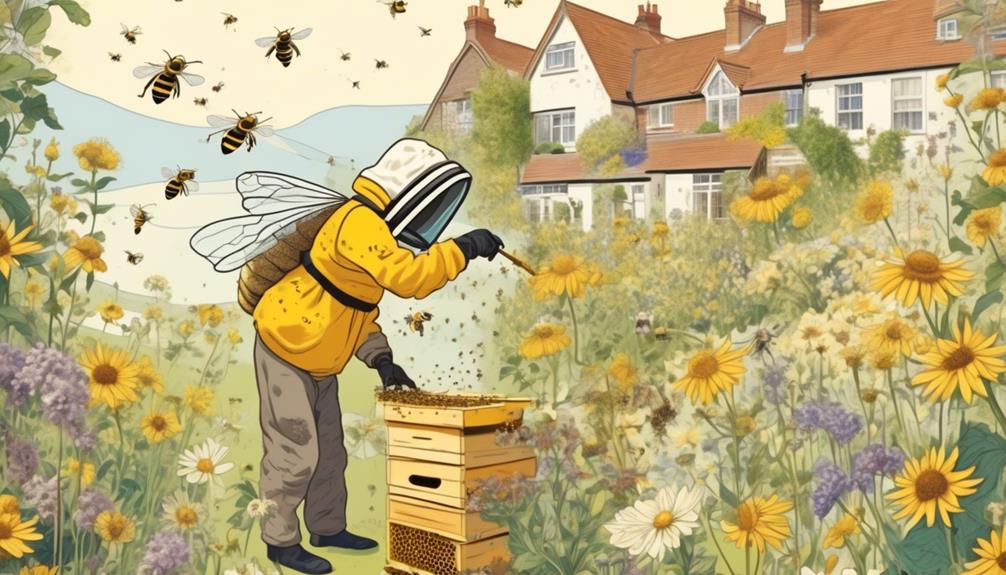
Before delving into the process of bee removal, it's critical to appreciate why bees play such a vital role in our environment. You see, bees are the world's most important pollinators of food crops. It's estimated that one-third of the food that we consume each day relies on pollination, mainly by bees.
They are absolutely fundamental to our ecosystem because of their role in the reproduction of plants. When a bee collects nectar and pollen from the flower of a plant, some pollen from the stamens—the male reproductive organ of the flower—sticks to the hairs of her body. When she visits the next flower, some of this pollen is rubbed off onto the stigma, or tip of the pistil—the female reproductive organ of the flower. This is how plants reproduce and grow.
Without bees, our diets would be severely limited, and it would be much more challenging to get the variety of fruits and vegetables that we're used to having. We also wouldn't enjoy the abundance of flowers in our landscapes.
Identifying Different Types of Bees
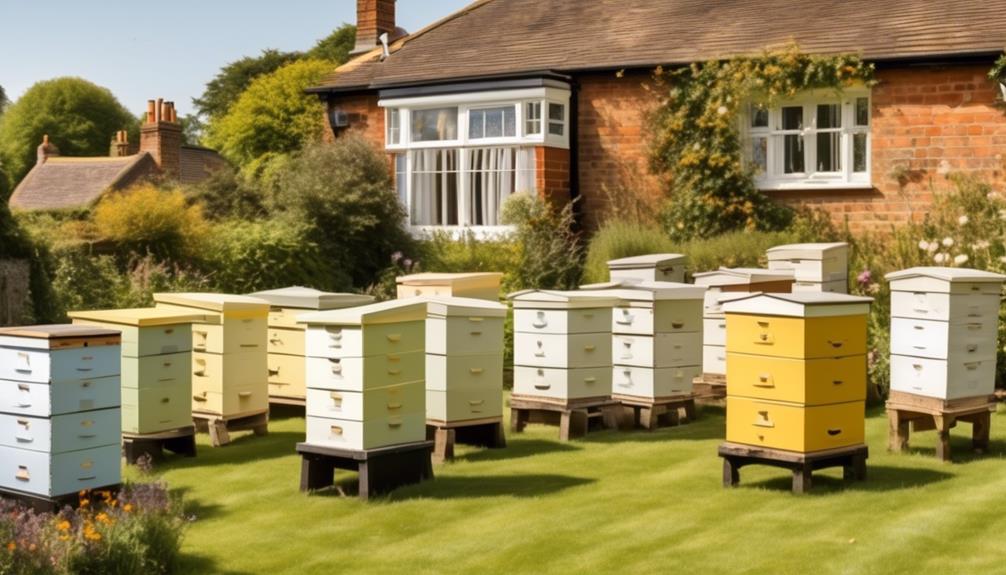
While appreciating the ecological significance of bees, it's also important to recognise that there are different types of bees in the UK, each with unique characteristics and behaviours.
Firstly, there's the Honeybee, famed for producing honey. They're typically gentle, except when defending their hive.
Next, the Bumblebee, larger and furrier than the Honeybee, they're also less aggressive and make nests in the ground.
Thirdly, you'll find the Solitary Bee. As their name suggests, they live alone, not in colonies like Bumblebees and Honeybees.
It's crucial to know how to identify these bees because their removal processes differ. Honeybees, for instance, are protected species, and their nests should be moved by a professional beekeeper. Bumblebees and Solitary bees, on the other hand, are harmless and should be left alone unless they pose a direct threat.
Recognising these differences will help you approach a bee situation appropriately. It'll determine whether you need professional assistance or if you can simply let nature take its course.
Bee Removal Procedures in the UK
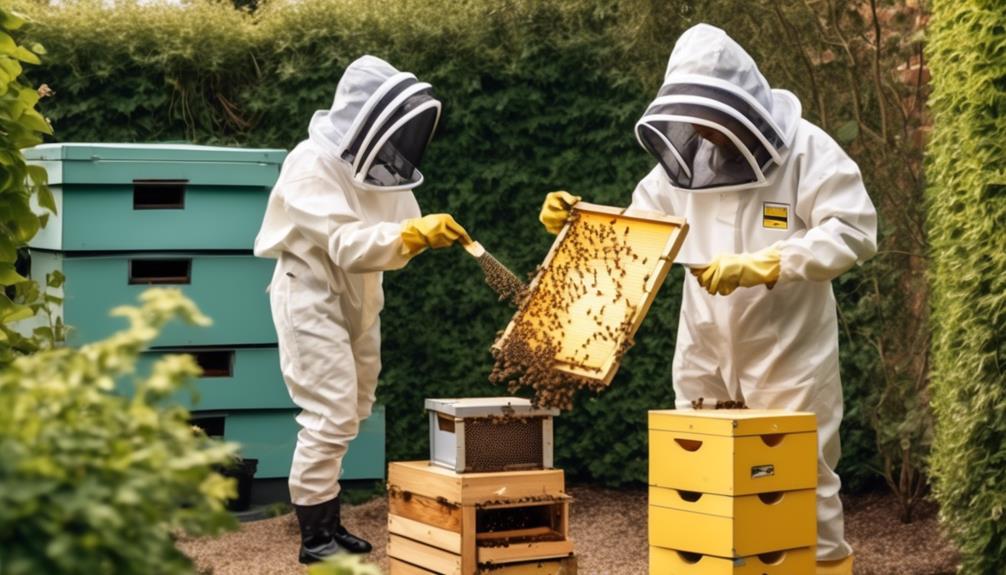
In the event of a bee infestation, understanding the correct removal procedures within the UK is crucial to ensure the safety of both the bees and individuals involved. Here, let's talk about the steps you'd need to follow.
First off, you must identify the type of bees you're dealing with. This step is vital as different bee species require different removal methods. Once you've identified the species, don't attempt to remove them yourself. Their removal should be left to professionals.
Contact a local beekeeper or a pest control company that follows the British Pest Control Association guidelines. They'll assess the situation and decide on the best course of action. This could involve relocating the bees, particularly if they're honeybees, which are protected by law in the UK.
Sometimes, the company may need to use pesticides if the bees pose a significant risk to people, but this is a last resort. Remember, if the infestation is in a hard-to-reach area, the removal process may take longer and could incur costs.
Free Bee Removal Options
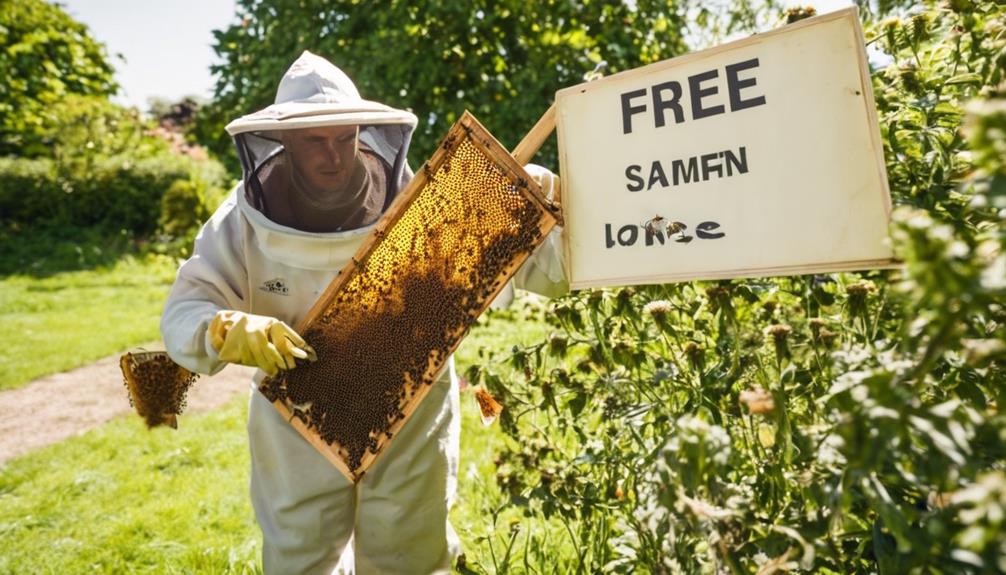
Shifting our focus, let's now explore the options you have for getting bees removed at no cost in the UK.
Your first port of call should be the British Beekeepers Association (BBKA). They provide a swarm collection service, which is usually free of charge. However, it's worth noting that this service is intended for honey bees only, as they're beneficial to our environment.
Another option is to contact local beekeepers. Some may be willing to remove the bees for free, particularly if it's a honey bee swarm. They're often keen to add to their colonies and may appreciate the opportunity to collect the bees.
Also, you might want to check with your local council. Some councils offer a free pest control service, which can include bee removal. However, this varies from council to council, so it's best to check their websites or speak to their customer services for clarification.
Paid Bee Removal Services
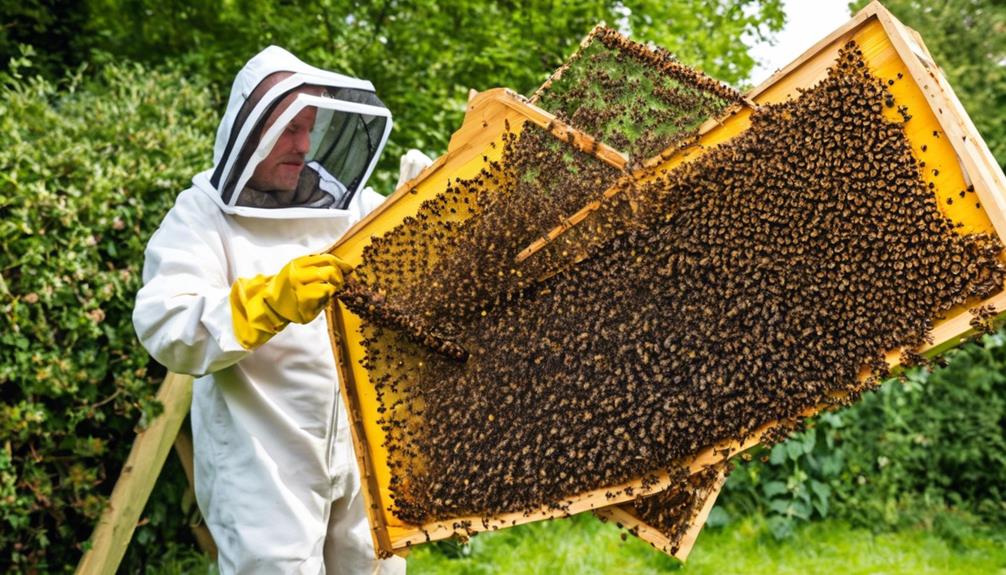
What if your bee problem isn't something local councils or volunteer beekeepers can handle? In such cases, there's another option available to you: paid bee removal services.
These services offer professional and experienced handling of your bee problem. They're usually equipped with the right tools and knowledge to safely and effectively remove bees from your property. Whether it's a minor infestation or a major hive construction, they've got it covered.
The cost of these services can vary widely depending on the specifics of your situation. Factors such as the size and location of the hive, the type of bees, and the complexity of the removal process can all impact the final price. It's always best to get several quotes from different companies to ensure you're getting a fair deal.
While it's not a free solution, paid bee removal services can provide peace of mind and a guaranteed resolution to your bee problem. Ultimately, the safety of your home and family may be worth the expense. Don't hesitate to invest in professional help if the situation calls for it.
Frequently Asked Questions
What Are the Potential Risks Associated With Trying to Remove Bees on Your Own?
Attempting to remove bees by yourself can be risky. You're likely to get stung, which can cause allergic reactions in some people. Incorrect removal may also harm the bees, disrupting local ecosystems. Additionally, leftover honey and wax can attract other pests.
Without professional knowledge and equipment, you may not fully remove the hive, causing the bees to return. It's safer and wiser to hire a professional to handle bee removal.
How Long Does the Process of Bee Removal Usually Take?
The duration of bee removal can vary greatly. It's dependent on factors like the size of the colony and its location. Generally, you're looking at a few hours to a full day. However, if the bees are inside a structure, it may take longer, possibly even a few days.
It's important you don't rush this process. Proper removal ensures the safety of both you and the bees.
Are There Certain Times of the Year When Bee Removal Is More Common or Difficult?
Yes, there are.
Bee removal tends to be more common during spring and summer when bees are most active. It's during these warmer months that they're out pollinating and could potentially establish a hive in your property. However, it's also more difficult to remove them during this period because they're more aggressive.
In contrast, during colder months, bees are less active making removal less common, but potentially easier.
What Measures Can Homeowners Take to Prevent Bees From Settling in Their Properties?
To prevent bees from settling on your property, you'll need to take a few steps.
Start by sealing off potential entry points, like cracks in walls or holes in the ground.
Regularly check for signs of a hive, like swarming bees or wax droppings.
Keep your garden tidy, as overgrown vegetation can attract bees.
Can Bees Cause Structural Damage to Homes or Other Buildings?
Yes, bees can cause structural damage to your property. While they're not directly harmful to the structure like termites, their nests, if large and left untreated, can cause issues.
Honey from the nests can seep into walls, attracting other pests and causing damp problems. Weight from a large nest can also lead to structural instability.
It's best to call a professional to safely remove the bees if you suspect an infestation.
Conclusion
In conclusion, bees are crucial for our ecosystem. However, when they pose a risk, removal may be necessary. Identifying the type of bee is key as honeybees can sometimes be relocated for free in the UK. However, for other types, you might need to pay for professional services.
It's all about weighing up the importance of bees against your safety. Remember, every effort should be made to protect these vital creatures while ensuring your environment is safe.


